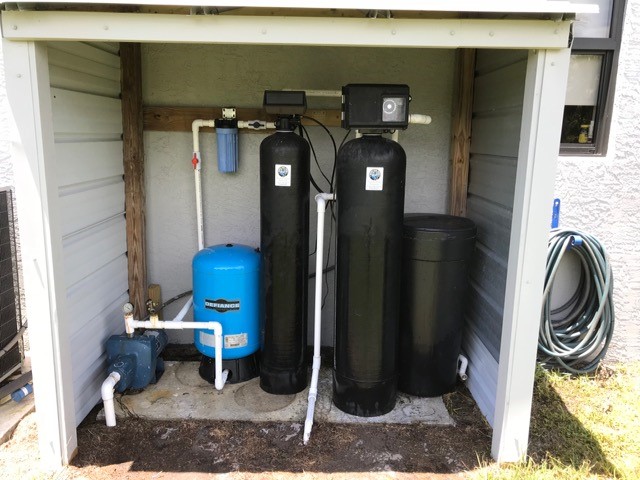Have you ever noticed a film on your dishes after running the dishwasher, or white buildup around your faucets? This could be a sign of hard water, a common issue in many households. While hard water is generally safe to drink, it can wreak havoc on your plumbing, appliances, and even your skin and hair. This article explores the impact of hard water and how a residential water softener can revolutionize your home.
Understanding Hard Water
Water hardness refers to the amount of dissolved minerals, primarily calcium and magnesium, present in your water supply. The higher the mineral content, the harder the water. Hard water can come from either private wells or municipal sources, depending on the geological makeup of the area.
The Problems with Hard Water
Hard water brings a multitude of challenges to your home:
- Scale Buildup: The minerals in hard water readily adhere to surfaces as limescale, a white, crusty deposit. This buildup can clog pipes, reducing water pressure and efficiency. Over time, it can damage appliances like water heaters, dishwashers, and washing machines, leading to premature failure and costly repairs.
- Reduced Cleaning Performance: Soap and cleaning products struggle to lather effectively in hard water. This can leave a filmy residue on dishes, clothes, and even your skin and hair. You may end up using more soap and shampoo to achieve the desired results, increasing your cleaning expenses.
- Skin and Hair Issues: Hard water can strip away natural oils from your skin and hair, leaving them feeling dry, itchy, and irritated. This can be particularly problematic for people with existing skin conditions like eczema or psoriasis.
- Discoloration of Clothes: Hard water can cause fabrics to fade prematurely and become dull. The minerals can also bind to fabric dyes, leading to discoloration and unattractiveness.
The Benefits of a Residential Water Softener
A residential water softener is a plumbing appliance designed to remove the hardness-causing minerals from your water supply. Here’s how a water softener can benefit your home:
- Protects Your Plumbing: By preventing limescale buildup, a water softener extends the lifespan of your pipes and plumbing fixtures. This translates to fewer repairs and replacements, saving you money in the long run.
- Improves Appliance Efficiency: Soft water allows your appliances to operate at peak efficiency. Water heaters won’t have to work as hard to heat water through clogged scale, reducing energy consumption and utility bills. Dishwashers and washing machines will clean more effectively with less soap, saving you money on detergents and extending appliance life.
- Softer Skin and Hair: Soft water leaves your skin and hair feeling smoother, healthier, and more manageable. You may notice a reduction in dryness, itchiness, and irritation.
- Cleaner Dishes and Clothes: With soft water, soap lathers effectively, leaving your dishes and clothes sparkling clean without film or residue. Colors will appear brighter, and fabrics will last longer.
- Reduced Maintenance: Soft water minimizes the need for harsh cleaning chemicals to remove mineral buildup. This makes cleaning easier and less time-consuming.
Choosing the Right Residential Water Softener
There are various types of residential water softeners available, each with its own advantages and considerations. Here are some factors to consider when choosing a water softener for your home:
- Water Hardness Level: Test your water to determine its hardness level. This will help you select a softener with the capacity to handle your specific water needs.
- Water Usage: Consider the average water consumption in your household. A softener with a larger capacity will be necessary for a larger family or a home with high water usage.
- Regeneration Type: Water softeners require periodic regeneration, a process that removes the captured minerals and cleans the system. Choose a regeneration type that fits your water usage patterns and schedule preferences.
- Features: Some water softeners offer additional features like automatic controls, metered regeneration cycles, and bypass valves for maintenance. Consider which features are important to you.
Consulting a Water Treatment Professional
Installing a residential water softener can significantly improve your water quality and home life. However, it’s crucial to consult with a qualified water treatment professional. They can assess your water hardness level, recommend the right type and size of water softener for your needs, and ensure proper installation and maintenance.
Conclusion
Hard water can be a nuisance and a source of problems in your home. By investing in a residential water softener, you can enjoy the benefits of soft water throughout your entire house. Soft water not only protects your plumbing and appliances but also promotes cleaner dishes and clothes, healthier skin and hair, and a more pleasant bathing experience. With the right water softener, you can transform your home into a haven of clean, soft water.



